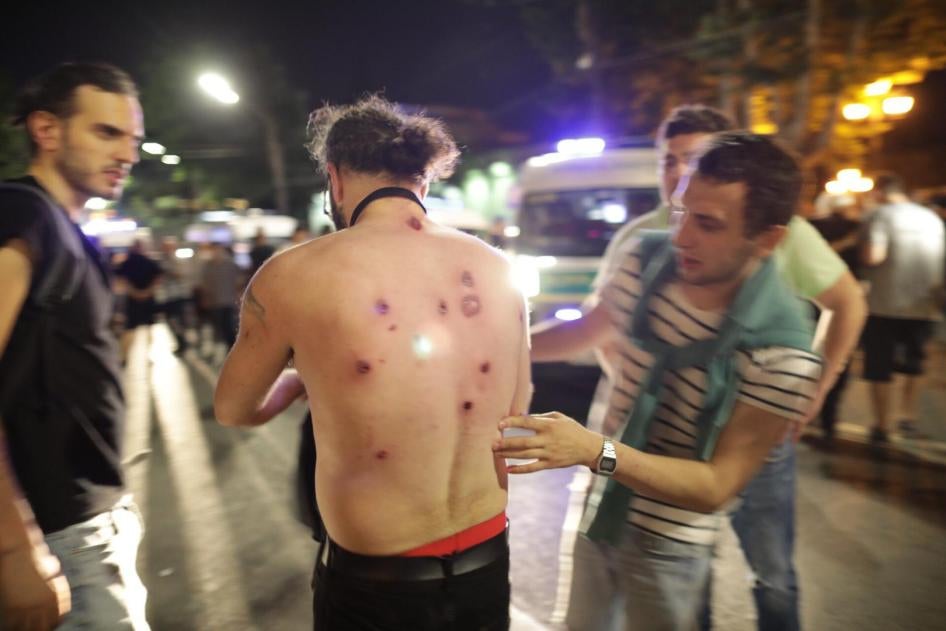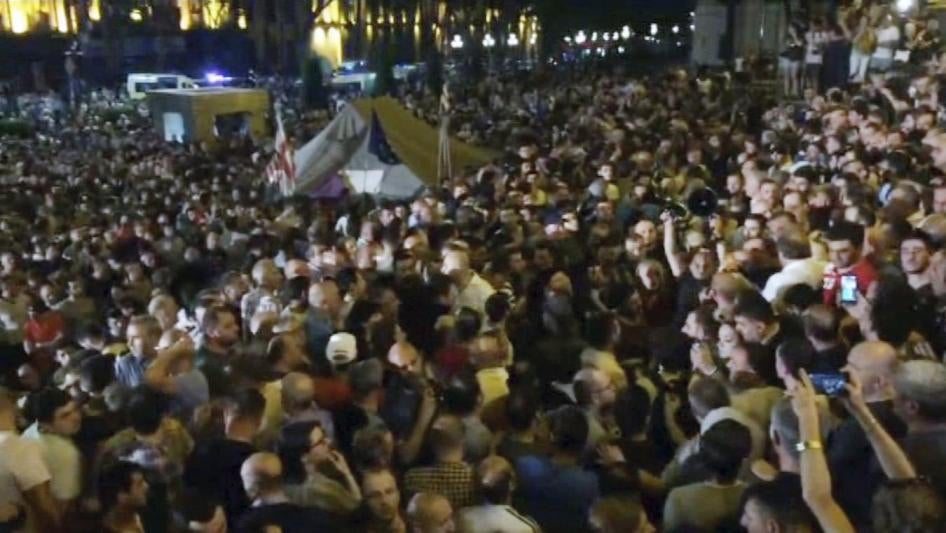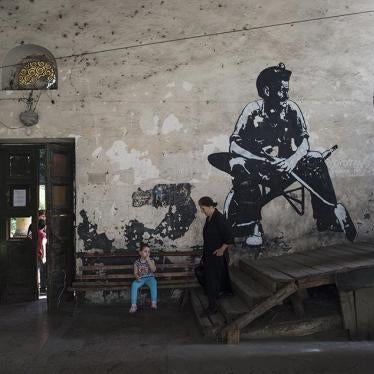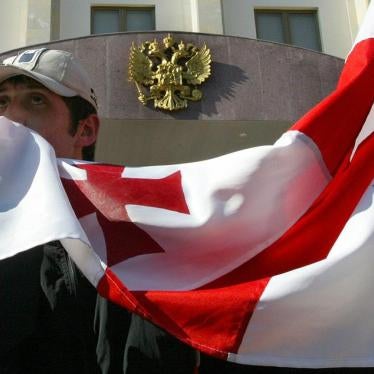(Tbilisi) – Riot police in Tbilisi fired rubber bullets and used teargas without warning against thousands of nonviolent protesters outside the Georgian Parliament on June 20, 2019.
As a standoff continues between protesters and law enforcement, it is urgent for the authorities to instruct the police to adhere to the rules on use of force under international law. Those rules require the police to use only strictly proportionate force in response to any threat posed by protesters, and to resort to measures such as rubber bullets only as a last resort.
“Riot police can take legitimate measures to prevent the crowd from storming parliament, but they are obligated to abide by human rights standards for the use of force, including rubber bullets and teargas,” said Giorgi Gogia, associate Europe and Central Asia director at Human Rights Watch. “They have not done that in their response to the protesters outside of parliament. As this situation develops, it’s crucially important for the police to adhere to these standards.”
Several thousand opposition and civic activists gathered in front of the parliament building in Georgia’s capital, Tbilisi, at 7 p.m. on June 20. The protest was sparked by the presence of a delegation from the Russian Duma in the parliament building in the morning. The delegation was part of the Inter-parliamentary Assembly on Orthodoxy (IAO) held in Georgia. In 2008, Georgia and Russia fought a war over the Georgian region of South Ossetia, with Russian forces occupying parts of Georgia.
The protesters demanded the resignation of the Interior Minister Giorgi Gakharia, the parliament speaker, Irakli Kobakhidze, and Prime Minister Mamuka Bakhtadze.
The tensions increased around 10 p.m. Some protesters broke through the first police cordon separating protesters from the parliament building, and the riot police pushed them back. Some protesters and riot police pressed against each other, as some of the protesters were trying to break the police cordon. Police showed restraint as they pushed back.
Some people in the crowd threw bottles of water at police, but otherwise the crowd was largely nonviolent. Human Rights Watch monitored the evening’s developments on live video feed, and viewed several instances when riot policemen ended up in the crowd of protesters, and the crowd ushered them to safety.
Around midnight, without any prior warning, the riot police opened fire on the crowd with teargas and rubber bullets. Video and photographs showed people who appeared to have been injured by the rubber bullets, in the head, legs, and back.
At 1 a.m., the Interior Ministry issued a statement that the crowd had gone “beyond freedom of expression and peaceful assembly” and had “turned into violence… Despite the requests of the Ministry of Internal Affairs, the [protesters] continuously attempted to break into the Parliament” and resisted police.
Law enforcement officers are obligated to respect the right of freedom of assembly as well as human rights standards on the use of force, including when dispersing both legal and illegal demonstrations. The United Nations Basic Principles on the Use of Force and Firearms by Law Enforcement Officials require police to use nonviolent means, such as demands, to vacate an area, before resorting to force and firearms.
Police should adhere to a principle of measured escalation of force. When using force, law enforcement officials should exercise restraint, act proportionately to the threat posed, and seek to minimize damage and injury.
“Even when police have grounds to disperse unlawful protests, they do not have carte blanche to do so with violence,” Gogia said.










